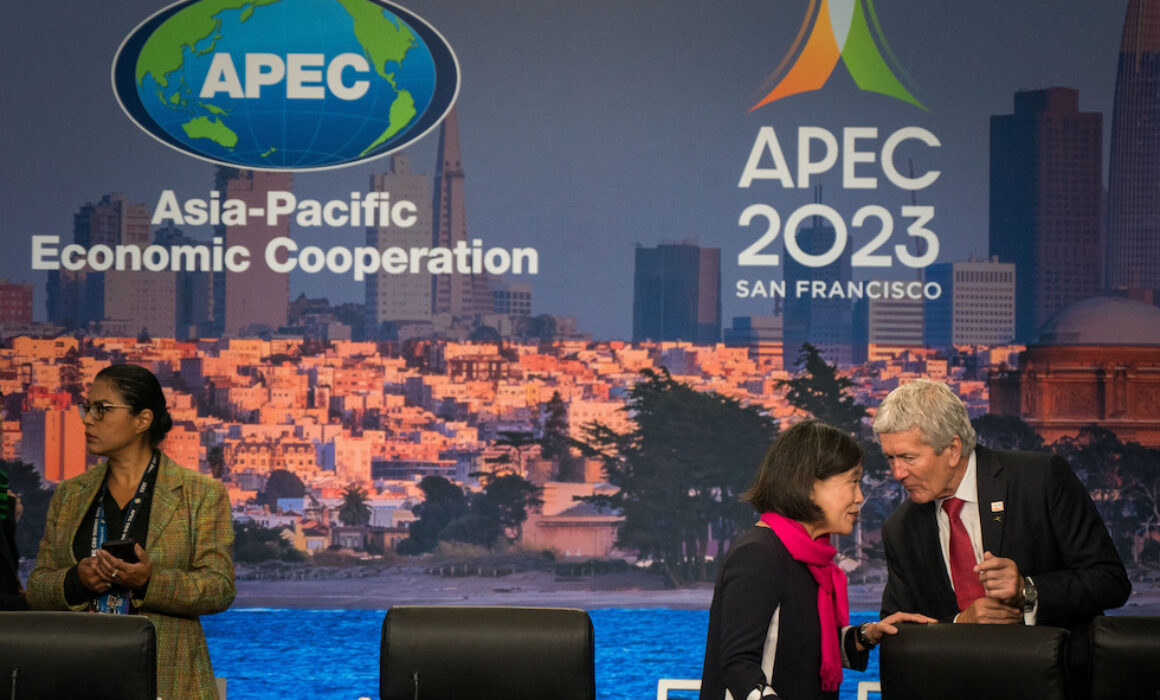The US’s New Approach to Trade Policy
October 24, 2024
Tracing the transformation of trade policy over the last four years.
The Roosevelt Rundown features our top stories of the week.
US Trade Representative Katherine Tai attends a November 2023 Asia-Pacific Economic Cooperation meeting in San Francisco, CA.
The New US Trade Agenda
The US approach to trade has changed dramatically in the past few years. Policies that once primarily served multinational corporations have been reoriented toward quality jobs, environmental sustainability, and domestic economic resilience. In a new report, Roosevelt’s Todd N. Tucker provides an overview of this new trade agenda, summarizing the findings of a study commission of scholars, labor leaders, and policymakers convened by Roosevelt earlier this year.
“A new set of values has started to guide US engagement with the global economy,” Tucker writes. He explains this new approach to trade through three core themes:
- Producing what matters: Trade negotiations should “focus on problem-solving around production challenges in specific sectors,” with the aim of bolstering competition and sustainable economic development globally.
- Consuming with purpose: The American import market should use its strength “to push countries, producers, and importers to follow high-road practices.”
- Personnel is policy: The policymakers, career staff, and experts who make up the government must be “willing and able to build on this new trade policy model and should reflect America’s full diversity.”
US industrial policies, including the Inflation Reduction Act and the CHIPS and Science Act, require a new trade policy strategy that can sometimes elicit a “heated international response,” writes Roosevelt CEO Felicia Wong in the report’s foreword. This suggests that there’s “value in communicating—and actually ensuring—that new industrial strategies are not a zero-sum game.” Investing in green manufacturing, for example, as the IRA seeks to do, could drive a global race to the top.
“We now have a state that puts resilience at its core,” writes Tucker. “There is no going back.” Read more: The New US Trade Agenda: Institutionalizing Middle-Out Economics in Foreign Commercial Policy.
What We’re Talking About

What We’re Reading
Power, as Well as Price, Matters in a Well-Run Economy – feat. Roosevelt Institute – Financial Times
The Fed Is Thinking Differently About the Labor Market. Will It Last? – by Roosevelt Senior Fellow J.W. Mason – Barron’s
Reparations Measures Stall Across US, but Advocates Undeterred – Reuters


